Filter by
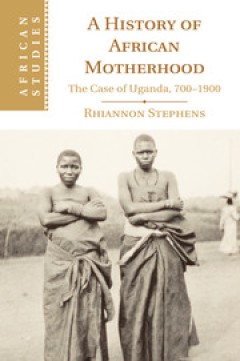
A History of African Motherhood The Case of Uganda, 700–1900
This history of African motherhood over the longue durée demonstrates that it was, ideologically and practically, central to social, economic, cultural and political life. The book explores how people in the North Nyanzan societies of Uganda used an ideology of motherhood to shape their communities. More than biology, motherhood created essential social and political connections that cut acros…
- Edition
- -
- ISBN/ISSN
- 9781139344333
- Collation
- -
- Series Title
- African Studies
- Call Number
- -

How history gets things wrong :the neuroscience of our addiction to stories
Why we learn the wrong things from narrative history, and how our love for stories is hard-wired. To understand something, you need to know its history. Right? Wrong, says Alex Rosenberg in How History Gets Things Wrong . Feeling especially well-informed after reading a book of popular history on the best-seller list? Don't. Narrative history is always, always wrong. It not just incomplete or i…
- Edition
- -
- ISBN/ISSN
- 9780262348416
- Collation
- 1 online resource (289 pages, 8 unnumbered pages of color plates) :illustrations (some color), maps
- Series Title
- -
- Call Number
- -
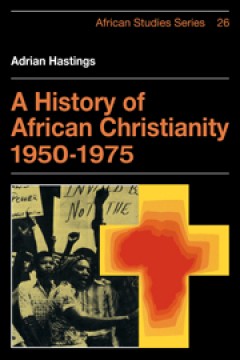
A History of African Christianity 1950–1975
The churches in Africa probably constitute the most important growth area for Christianity in the second half of the twentieth century. From being a number of rather tightly controlled 'mission fields' zealously guarded by the great missionary societies, Catholic and Protestant, they have emerged across the last decades in bewildering variety to selfhood, a membership of close on a hundred mill…
- Edition
- -
- ISBN/ISSN
- 9780511563171
- Collation
- -
- Series Title
- African Studies
- Call Number
- -

A Historical and Topographical Guide to the Geography of Strabo
Strabo's Geography, completed in the early first century AD, is the primary source for the history of Greek geography. This Guide provides the first English analysis of and commentary on this long and difficult text, and serves as a companion to the author's The Geography of Strabo, the first English translation of the work in many years. It thoroughly analyzes each of the seventeen books and p…
- Edition
- -
- ISBN/ISSN
- 9781316848203
- Collation
- -
- Series Title
- -
- Call Number
- -
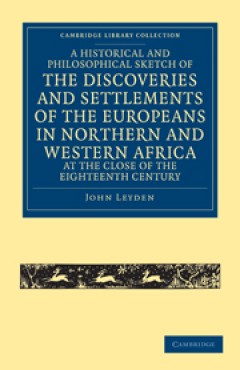
A Historical and Philosophical Sketch of the Discoveries and Settlements of t…
lthough he had never set foot in Africa, Scottish poet and linguist John Leyden (1775–1811) decided to publish in 1799 this compilation on 'discoveries and settlements' there, drawing from the published works of explorers. His aim was 'to exhibit the progress of discoveries at this period in North and West Africa', giving descriptions of places such as Guinea, the Gold Coast, and Sierra Leone…
- Edition
- -
- ISBN/ISSN
- 9781139058759
- Collation
- -
- Series Title
- Cambridge Library Collection - African Studies
- Call Number
- -
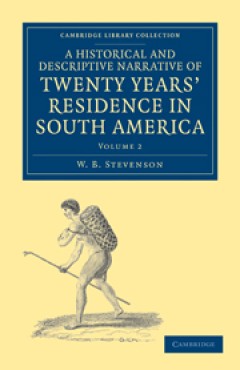
A Historical and Descriptive Narrative of Twenty Years' Residence in South Am…
In 1804 when W. B. Stevenson (fl. 1803–25) arrived on the small island of Mocha, just off the coast of South America, he stepped onto a continent on the brink of mass revolution. Over the next twenty years, he had an extraordinary range of experiences: as a traveller, a Spanish government official, a prisoner, and as secretary to an ex-Royal Navy admiral turned revolutionary. In this three-vo…
- Edition
- -
- ISBN/ISSN
- 9781139060592
- Collation
- -
- Series Title
- Cambridge Library Collection - Latin American Studies
- Call Number
- -
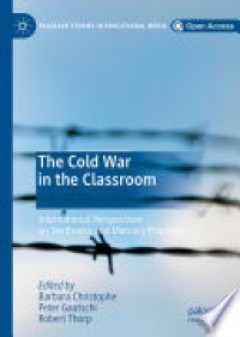
The Cold War in the classroom : international perspectives on textbooks and m…
This book explores how the socially disputed period of the Cold War is remembered in today’s history classroom. Applying a diverse set of methodological strategies, the authors map the dividing lines in and between memory cultures across the globe, paying special attention to the impact the crisis-driven age of our present has on images of the past. Authors analysing educational media point t…
- Edition
- -
- ISBN/ISSN
- 9783030119997
- Collation
- -
- Series Title
- -
- Call Number
- 909.825072

Women's Rights? : The Politics of Eugenic Abortion in Modern Japan
This volume explores the concept of Japanese reproductive rights and liberties in light of recent developments in disability studies. Masae Kato asks important questions about what constitutes personhood and how, in the twenty-first century, we come to understand eugenic abortion and other bioethical arguments. Tracing the origin and influence of the concept of a "right," the author places the …
- Edition
- -
- ISBN/ISSN
- 9789053567937
- Collation
- 342 halaman
- Series Title
- IIAS Publications Series
- Call Number
- 300 KAT w
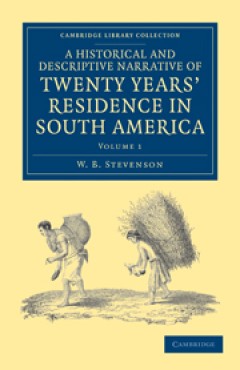
A Historical and Descriptive Narrative of Twenty Years' Residence in South Am…
In 1804 when W. B. Stevenson (fl. 1803–25) arrived on the small island of Mocha, just off the coast of South America, he stepped onto a continent on the brink of mass revolution. Over the next twenty years, he had an extraordinary range of experiences: as a traveller, a Spanish government official, a prisoner, and as secretary to an ex-Royal Navy admiral turned revolutionary. In this three-vo…
- Edition
- -
- ISBN/ISSN
- 9781139060585
- Collation
- -
- Series Title
- -
- Call Number
- -

Dictionary of British Arms
This is the second of a four-volume collection of British heraldic arms, arranged alphabetically according to their designs and covering the period before 1530. Listed within this volume are entries from Bend to Chevron. This book will help readers to identify the arms that were widely displayed in the Middle Ages and which can now be found not only on tombs, monuments and seals, but also on te…
- Edition
- -
- ISBN/ISSN
- 9780854312689
- Collation
- -
- Series Title
- -
- Call Number
- -
 Computer Science, Information & General Works
Computer Science, Information & General Works  Philosophy & Psychology
Philosophy & Psychology  Religion
Religion  Social Sciences
Social Sciences  Language
Language  Pure Science
Pure Science  Applied Sciences
Applied Sciences  Art & Recreation
Art & Recreation  Literature
Literature  History & Geography
History & Geography